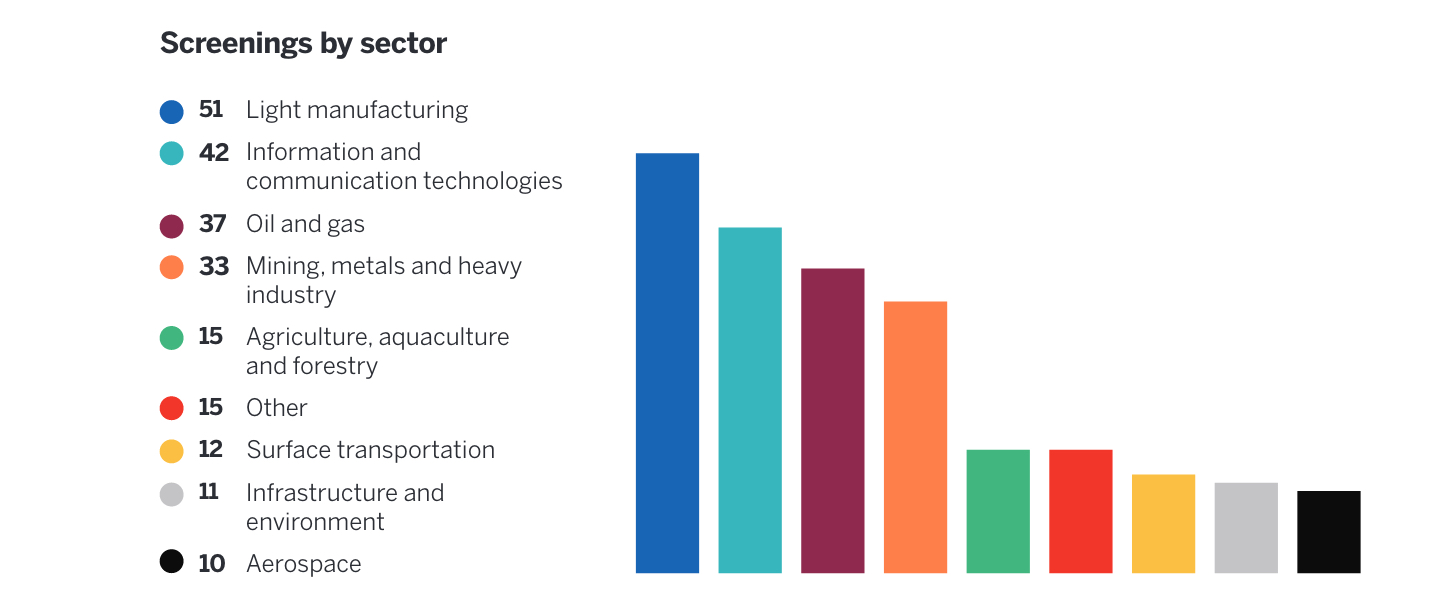Activity
accomplished

On May 1, 2019, EDC launched a board-approved Human Rights Policy, which aligns with the United Nations Guiding Principles on Business and Human Rights (UNGPs) and recognizes our responsibility to respect all internationally recognized human rights, both within our organization and through our transactional relationships. Importantly, the policy also creates the conditions for thoughtful and considered decision making, in a way that accounts for impacts on people and provides direction for navigating complex issues.
The development of EDC’s policy was an opportunity to highlight the work we’ve been doing to bring a human rights lens to the due diligence we conduct on transactions. As part of the process, we conducted extensive public consultation with civil society, government and industry, and sought guidance from Shift, a non-profit organization that is the leading centre of expertise on the UNGPs.
To help facilitate our CSR and human rights journey, we’ve made some important internal changes.
- We’ve grown our Corporate Sustainability and Responsibility team, ensuring we have the right people in place to support our business.
- On the human rights front, we have dedicated organizational change management resources to help facilitate the changes associated with our new policy.
- We’re developing targeted positions for sectors where we’ve identified higher risk profiles (e.g. garment, telecom & software) to help our employees better understand environmental, social and human rights–related risks and the parameters of EDC’s approach and risk appetite.
This is by no means a straightforward journey. Embedding human rights into our practices will take time and we may make mistakes along the way. But our view is that as long as we are continuing to evolve, mature and learn from our peers how best to address these complex issues, we’re making important progress.
Looking ahead, 2020 will be an important year for strengthening our human rights management capacity. In our Human Rights Policy Implementation Plan, we’ve committed to defining and implementing a formalized approach to engaging stakeholders on business and human rights, developing guidelines on leverage and remedy, and continuing to increase and improve our reporting and disclosing of our human rights performance in a meaningful way.
Human rights governance, roles and responsibilities
- EDC’s Board of Directors and Executive Management team oversee our environmental and social risk management policies, including the Human Rights Policy.
- Our CSR Advisory Council meets twice a year to advise on CSR practices to help us make transparent and positive contributions to environmental and social issues such as human rights.
- EDC’s Senior Vice-President of Sustainable Business and Enablement (SB&E) is accountable for the development, implementation and maintenance of the Human Rights Policy.
- Reporting to the Senior Vice-President of SB&E, the Vice-President of CSR is responsible for the ESRM team, whose responsibilities include: implementing EDC’s environmental and social risk management policies and procedures; reviewing transactions for environmental, social and human rights–related risks; conducting environmental, social and human rights due diligence for transactions under consideration by EDC; and performing environmental and social monitoring.
- As of 2019, as part of our capacity building, the ESRM team has designated a Centre of Expertise, which plays a strategic role in enabling EDC’s leadership in environmental and social risk management through policy development, operationalization and governance; in refining EDC’s environmental and social risk appetite; and in planning and coordinating key initiatives.
2019 implementation plan
Status
2019 activities
Deliver ongoing training, education and capacity building on key elements of the Human Rights Policy
- EDC’s senior vice-presidents participated in a three-hour workshop led by Shift on the UNGPs in January. The session led to the approval of the Human Rights Policy in February.
- Given the success of that workshop, another session was organized for EDC’s board members and senior vice-presidents in September. Led by Shift, this session focused on the UNGPs and the practical implications of EDC’s Human Rights Policy.
- EDC’s senior management and other decision makers participated in a workshop on engaging versus disengaging from a relationship or transaction with identified human rights risks.
- Over 200 EDC employees registered for a lunch-and-learn organized by Shift on the practical implications of the Human Rights Policy.
- Between April and May, EDC’s ESRM team facilitated four one-hour workshops on the newly approved Human Rights Policy and its potential impact on our business, reaching 233 employees.
Activity
accomplished
Disclose EDC’s human rights due diligence guidelines
- EDC has now published its Due Diligence Framework on Human Rights on its website. The framework outlines the key steps we take to identify and address human rights–related risks and impacts as part of our environmental and social due diligence process.
- As requested during the public consultation, the framework provides greater transparency of our due diligence processes, which includes risk identification and prioritization, decision-making criteria, engagement with our clients, and ongoing monitoring.
Accomplished and ongoing
Plan the development of new sector- or issue-specific due diligence guidance on human rights matters
- We continued to identify and prioritize issues based on changing landscapes, and planned the development of sector- or issue-specific papers relevant to our business and associated with higher human rights risks. For example, we published a document for SMEs operating in the apparel, footwear and textile industries about issues they might encounter in their supply chains and ways to address them. We also have an associated blog including a customer story showcasing how we added value to their work.
In progress and ahead of schedule
By 2021, report more comprehensively on our annual human rights performance
- We conducted an internal benchmarking exercise to guide our human rights disclosure and future direction for tracking and reporting performance in our annual report.
- We also received feedback from Shift on reporting best practices. We will continue to evolve our approach to human rights performance reporting to align with such practice.
Accomplished and ongoing
Participate in and influence industry and standard-setting bodies
- EDC is actively engaged with OECD environmental and social practitioners. In February and October, we made presentations to practitioner groups on our environmental and social policy development and implementation in the key areas of human rights and climate change.
- In April, our ESRM director participated in a panel at the Taking Responsibility symposium to discuss how public actors address the question of business and human rights.
- In November, EDC participated in the UN Forum on Business and Human Rights in Geneva. One of our subject matter experts sat on a panel discussing policy coherence in trade and presented EDC’s human rights journey.
- In December, EDC’s President and CEO participated in a panel called Promoting Human Rights Due Diligence through State Financing at a conference organized by Finland’s Presidency of the Council of the EU in collaboration with Shift. It was an opportunity to speak about what motivated her to take a strong leadership position on human rights.
- Also in December, EDC’s President and CEO participated in a panel on fostering inclusion in trade at the Next Generation Trade Conference organized by the Institute of Human Rights and Business. She highlighted our work on women-led and indigenous-led businesses.
- EDC was actively involved in the Equator Principles Steering Committee discussions leading up to Equator Principles 4, specifically around the language related to the management of impacts on indigenous peoples and human rights.
Human rights risk screenings
Where potential and/or actual severe human rights issues are identified, a thorough assessment is conducted by EDC experts to examine country risk, the company’s track record and management capacity, the product being exported, and potential impacts on vulnerable peoples. This allows us to assess the level of risk and whether any mitigation measures are required to determine if we should support or decline a transaction. To determine if an assessment is required, the ESRM team conducts a screening to identify the risks related to a transaction. The ESRM team conducted 226 human rights risk screenings in 2019(1). These are a critical part of the overall risk assessment process and decision making, which may result in declining certain transactions or approving them with certain requirements to manage those risks where required.


(1) The ESRM team conducted 226 human rights risk screenings in 2019.
Available mechanisms for recourse
Grievance mechanisms are essential for ensuring that a company’s stakeholders, including community members, have a channel to raise complaints or concerns. When a high likelihood of potential and/or actual severe human rights impacts are identified, EDC assesses the effectiveness of a company’s stakeholder engagement program and grievance mechanisms as described in the UNGPs.
We believe it’s essential for companies to strive to prevent issues by engaging proactively with affected stakeholders. Shortcomings in a company’s stakeholder engagement program and grievance mechanisms may trigger the need for additional due diligence and dialogue, as well as the inclusion of time-bound commitments in our customer agreements.
EDC also commits to take reasonable steps to co-operate in the Canada’s National Contact Point and Canadian Ombudsperson for Responsible Business (CORE) processes when our customers are concerned.
Accelerating respect for human rights
The spring 2019 meeting of our CSR Advisory Council was devoted to discussing the use of leverage in the context of the UNGPs, and the role of financial institutions. John Morrison, CEO of the Institute for Human Rights and Business, spoke on expectations, scope and the limitations of using leverage.
Following this, the Council discussed important issues faced by EDC’s stakeholders, as well as principles to guide decision making on how an export credit agency can use leverage to support human rights. The Council arrived at the following aspirational statement: “EDC will accelerate respect for human rights internationally through leveraging its resources and stakeholder relationships – and in particular its relationships with Canadian businesses – in order to advance the positive impacts of Canadian businesses abroad.”
